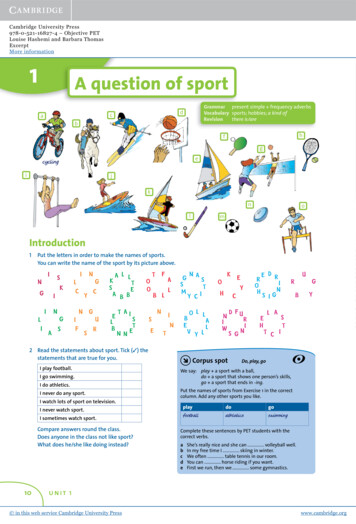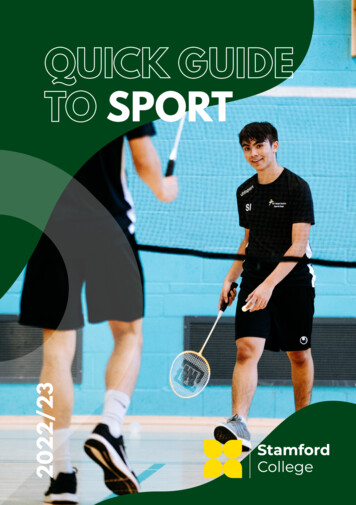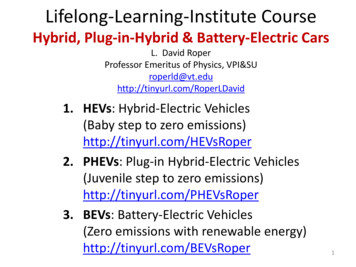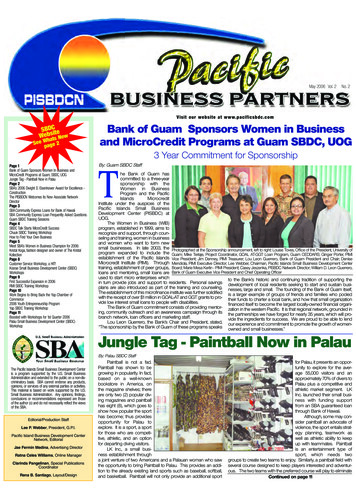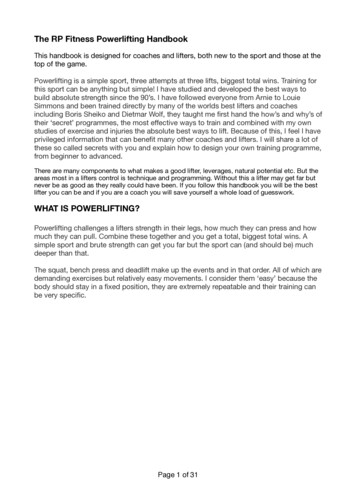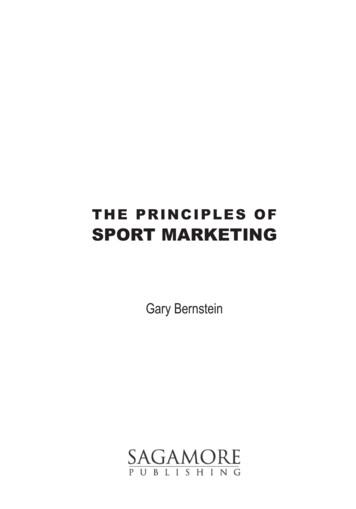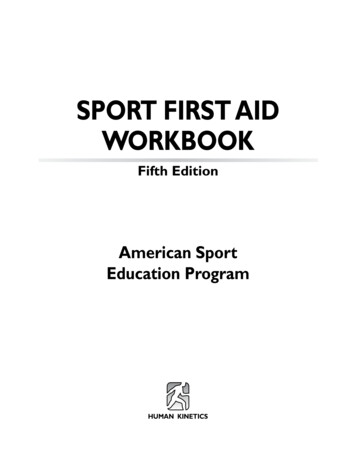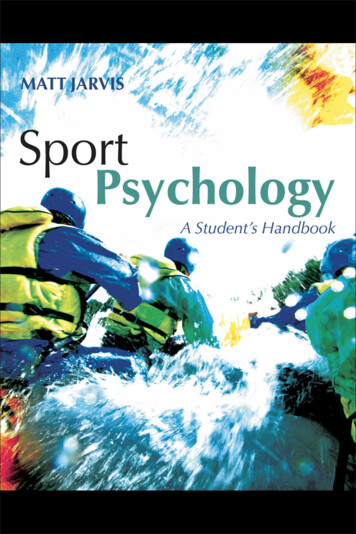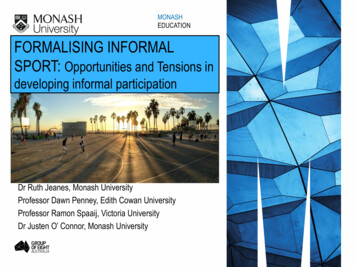
Transcription
MONASHEDUCATIONFORMALISING INFORMALSPORT: Opportunities and Tensions indeveloping informal participationDr Ruth Jeanes, Monash UniversityProfessor Dawn Penney, Edith Cowan UniversityProfessor Ramon Spaaij, Victoria UniversityDr Justen O’ Connor, Monash University
Introduction Significant changes in sport participationtrends (ABS, 2014) Previous decade dropped in organisedparticipation Rise in unstructured informal participation Response to ‘liquid’ modernity (Bauman,2013) & ‘liquid leisure (Blackshaw, 2010) General lack of response from policymakers and practitioners (CSIRO, 2013) Consider some of the challenges andopportunities Managing sport in ‘liquid’ times Focus on informal participation intraditional sport2MONASHEDUCATION
Literature review Mainly focused on ‘lifestyle’ sportsExplored issues of identity and subculture(Wheaton 2013, 2016; 2017)Highlighted health and social benefits(Gilchrist & Wheaton, 2017; King &Church, 2015)More recent focus on issues ofgovernance (Sterchele & FerreroCamoletto, 2017)Regulation of Parkour (Gilchrist & Osborn,2017; Wheaton & O’Loughlin, 2017),development of coach education‘Selling out’ of informal valuesIssues of contested space (Gilchrist &Osborn, 2017)3MONASHEDUCATION
Methodology Interviews with sporting and communitystakeholders State Sport Association representatives(2) Local Authority Sport Developmentofficers (3) Community group representative (2) All working in diverse and disadvantagedareas Various interactions with informal sport In-depth semi structured interviews, Observations of informal participation4MONASHEDUCATION
Findings : Benefits‘it helps them settle, it builds social cohesionwithin the community. I think it obviouslykeeps them physically active and healthy. Ithas a huge benefit there. I know for theirmental wellness, it definitely keeps - it has allof those physical and mental wellbeingaspects of physical sport; it’s just done in adifferent way. It would get the same benefitsas you and I going to play at a club, but thething is there’s no cost to it, it’s affordable, it’swith their mates, and it’s empowerment forthem, because they’re determining; they’renot being told by anyone what to do. It’s acompletely community capacity-buildingactivity because they organise’ (Narresh LGAofficer)5MONASHEDUCATION
Tensions: Clashes with Existing Sporting Structures‘there is so much informal participation but weare not here to support that, our role is toensure we support those clubs that are payingmembership fees and part of the system andpathway. We exist to support them so we haveto make sure they are our priority focus.’(Robyn SSA officer) at the moment sports associations arefunded on the number of affiliated membersthey have, there might be pockets of fundingfor informal opportunities but their core fundingcomes from supporting structured pathwaysand talent development. Unless we shift to agenuine participation model it is unlikely sportsassociations will place significant importanceon supporting informal opportunities. (Asha,community worker)6MONASHEDUCATION
Ownership of space‘yes a club will have a problem with thirtySudanese lads using “their” pitch regardless ofwhether they cause any damage because theydon’t think they should be there’. (Narresh, LGAofficer)‘There’s just no discussion or communication.Why are we only building facilities that we wantsports clubs to use when we’ve got a smallpercentage of the population playing structuredsport and the rest aren’t .But having anunderstanding of what they’re actually doingmeans that we could at least provide facilitiesthat would cater for those needs and probablybuild more multiuse facilities’ (Narresh, LGAofficer)7MONASHEDUCATION
Discussion & Conclusions Informal participation considerablegrowth areaCurrently sporting systems andstructures not able to support ormanage participationParadox of organisations seeking topromote participation tend tolimit/reduce opportunities.New models ofdevelopment/management requiredReconceptualisation of what sport isand what type of participation isvalued.8MONASHEDUCATION
(Wheaton 2013, 2016; 2017) Highlighted health and social benefits (Gilchrist & Wheaton, 2017; King & Church, 2015) More recent focus on issues of governance (Sterchele & Ferrero-Camoletto, 2017) Regulation of Parkour (Gilchrist & Osborn, 2017; Wheato
